This may just be the light at the end of the tunnel speaking, but Episode 19 was a big old relief to me. Some of the conflict resolutions felt anticlimactic after all the many hours of hard-core angsty build-up, but I’m beyond the point of caring about that and am just glad that things are speeding to a close. Well, maybe “speeding” is the wrong word, but at least we’ve resumed moving from that standstill — quicksand, even — of the middle stretch.
SONG OF THE DAY
Cinderella’s Sister OST – “나무” (Tree) by Alex [ Download ]
EPISODE 19 RECAP
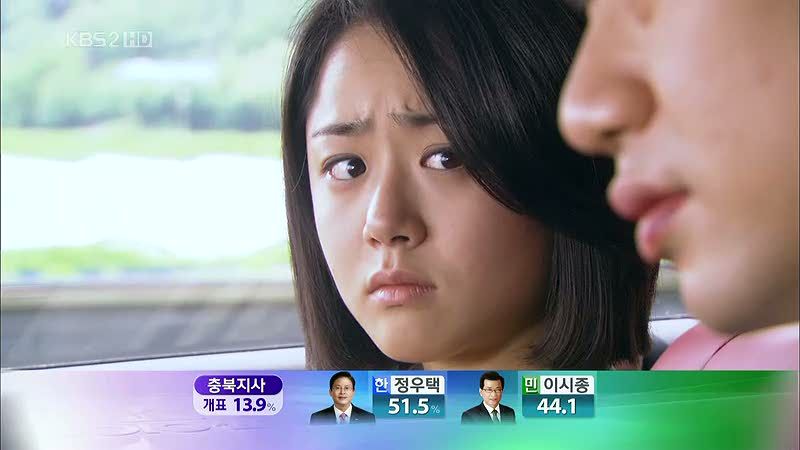
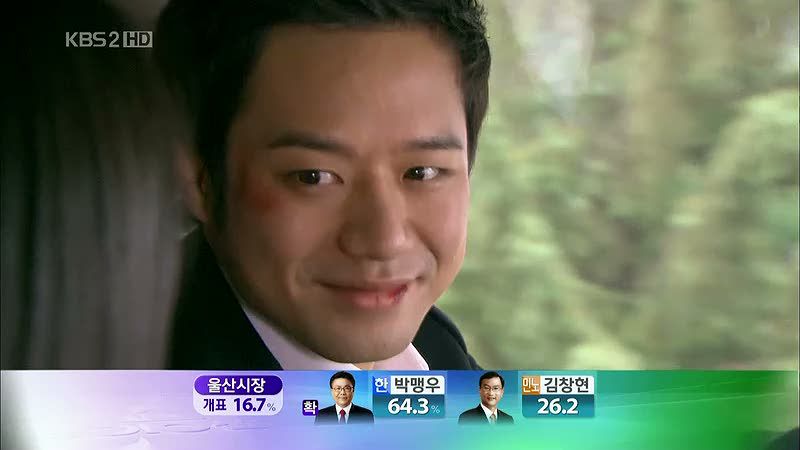
After being released from his brother’s clutches, Ki-hoon drives along, in such a great mood that he can’t stop smiling. Despite that, Eun-jo doesn’t share his ebullience and is more concerned about his condition — he’s hungry, as he hadn’t eaten a thing during his kidnapping. When they stop in the middle of the woods, Ki-hoon gestures her closer for a talk. (Why is he always taking her into the woods to talk? One of these days he’s gonna pull up to a Unabomber-style shack, is all I’m sayin’.) Eun-jo goes off in search of food instead.
There’s no restaurant around, so she prevails upon an elderly shopkeeper, asking for some porridge. As Ki-hoon eats, he tells her that he knows what she’s thinking (as in, worrying about all of their business problems) but for the next 80 minutes, it doesn’t matter because he’s going to act like it’s eight years ago, like he never took that train and they never separated. He’ll treat every 10 minutes like a year, starting with 2002.
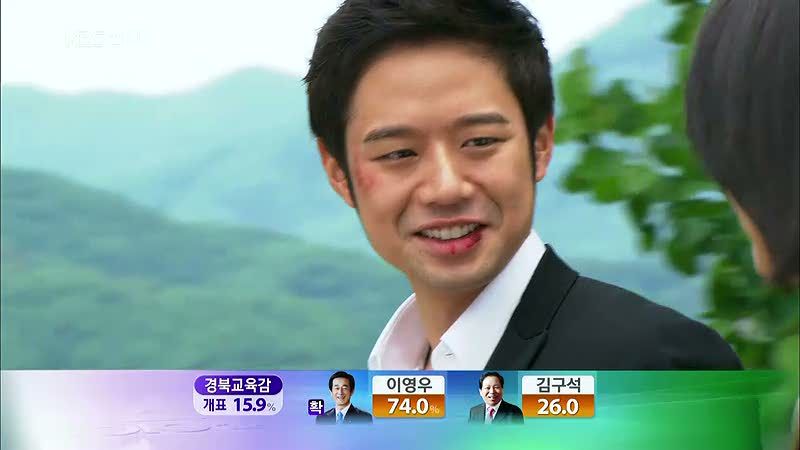
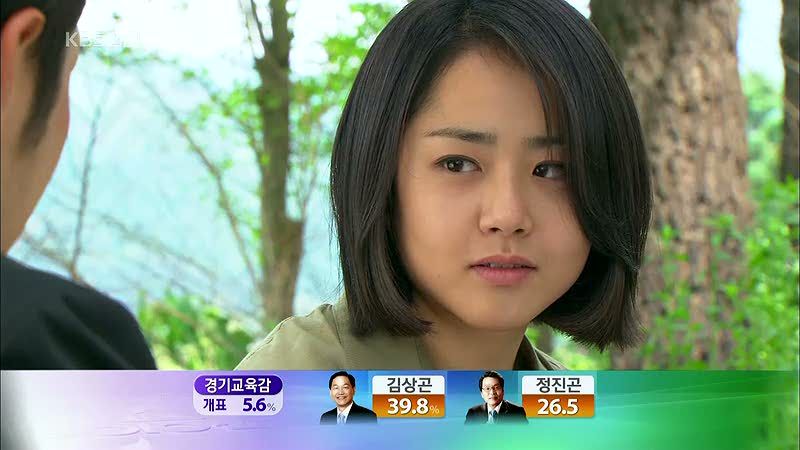
With that, he begins by talking to Eun-jo as though he’s still her math tutor, taking her to task for missing a problem he had shown her how to solve. Eun-jo smiles at his silliness, but she allows him this exercise by playing along (ever so slightly), addressing him as she used to when he was her tutor.
What follows is one of the more inspired sequences of this drama, because we get to see them acting as they might have if Ki-hoon had never left and their relationship had never suffered that crippling break. Of course, we wouldn’t have had a drama if they’d been allowed to have a healthy relationship unhampered by avaricious family members and phone-induced-death guilt. But this is the version of their relationship that I’d wished for them back then.
As one 10-minute segment bleeds into the next, Eun-jo goes from being a high schooler to a new university student at Ki-hoon’s school. They continue “dating,” and he voices displeasure about that boy who’s been hanging around her at school.
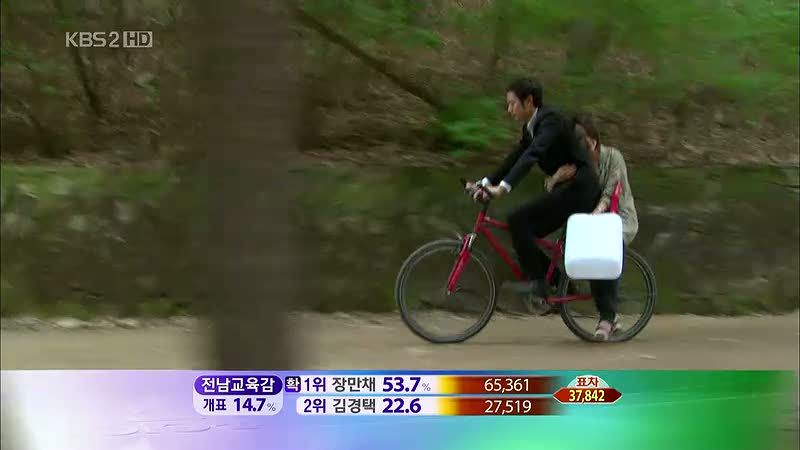
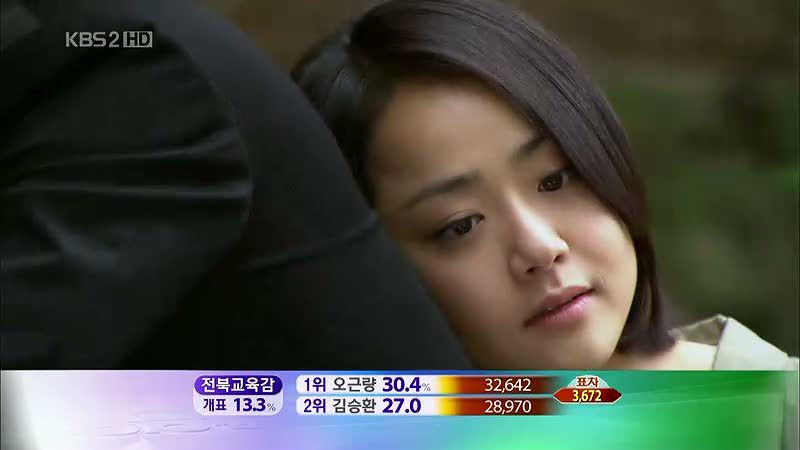
A bike trip to the gas station gives the two an excuse to imagine that they’re on a date, and now we’re four years into the exercise: Ki-hoon supposedly continues at graduate school because he’s reluctant to jump into the workforce and leave Eun-jo behind, worrying that she’ll date somebody else at school. He scolds her about her grades as she rests her head on his back.
Another 10-minute segment passes, and now Ki-hoon argues about Eun-jo wanting to study abroad, and offers to teach her English instead. In their imaginary version of 2008 when Eun-jo graduates from university, their relationship has remained strong, with no breaks.

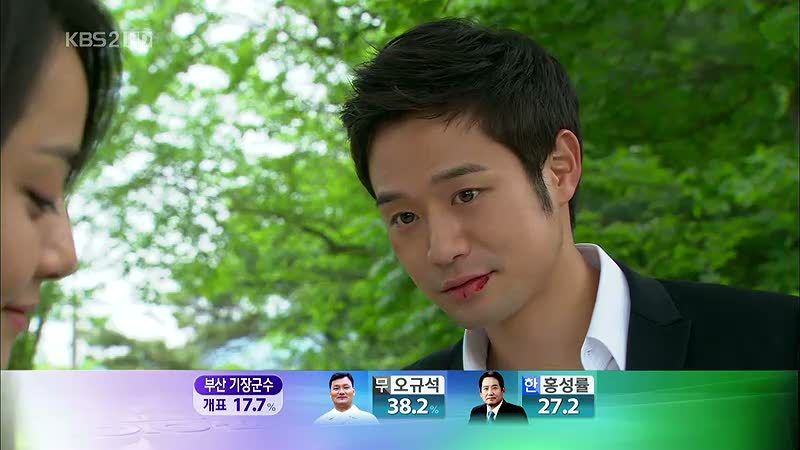
Finally, by the time they make it back to the car, Ki-hoon talks about marriage. He assures her he’s got everything to make her happy — good brain, good looks, good sense of humor. He doesn’t have money, but he’ll earn some from now on. And he wants to live with his father in this scenario, since Dad was pushed out of his job at the company.
Ki-hoon talks about all this in a very mundane way — the beauty of the imaginary 80-minutes-as-8-years is that it’s plain and ordinary, since normalcy is a luxury they haven’t been able to enjoy. Eun-jo thinks to herself that this Ki-hoon has never hurt her, bears no guilty conscience, and therefore is able to propose marriage freely. She decides to make him wait for her answer, just to make him suffer a little bit, and tells him he’d better earn some money first before she’ll consider saying yes.
However, as their 80 minutes come to a close, the smile fades from Ki-hoon’s face; real life is intruding on the fairy-tale fantasy. Eun-jo heads back to the store to thank the grandma for her help, and when she turns back, Ki-hoon and the car are gone. The fool has actually left her behind.
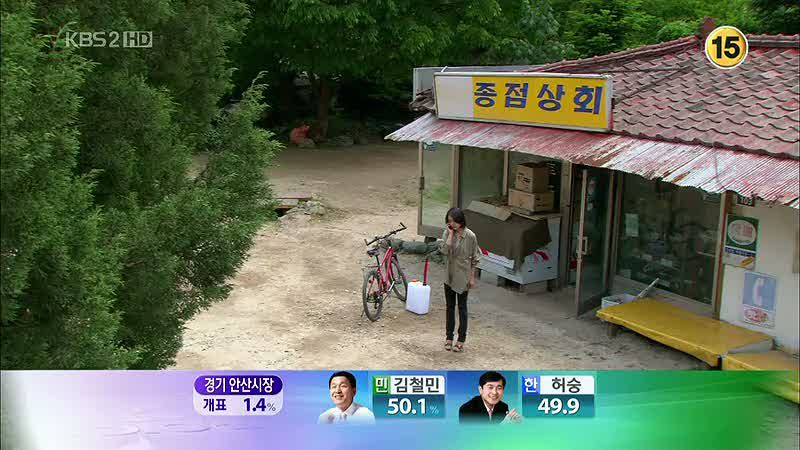

Ki-hoon calls her to say he’s going to deliver the evidence to Hong Ju in order to save Dae-sung Co. He’s doing this because he knows she’d protest, and she does in fact try to talk him out of it, but he is determined.
Then more distressing news: Hyo-sun calls in a panic because Jun-su is gone. He wasn’t at school when she went to pick him up, he’s not in the house, which she has searched, and none of his friends know where he is. Will this drama not be satisfied until everyone has either run away or made the attempt?
Jung-woo, Hyo-sun’s uncle, and the ajummas scour the neighborhood looking for Jun-su, while Hyo-sun tries to contain her fears and calls Kang-sook to try to let her know. Eun-jo heads home in a taxi, worried about her brother and thinking to herself that her fairy tale ended at 5:20.
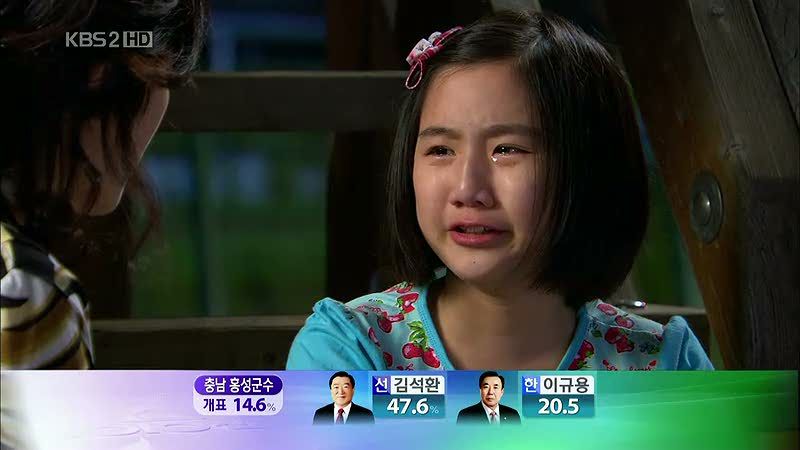
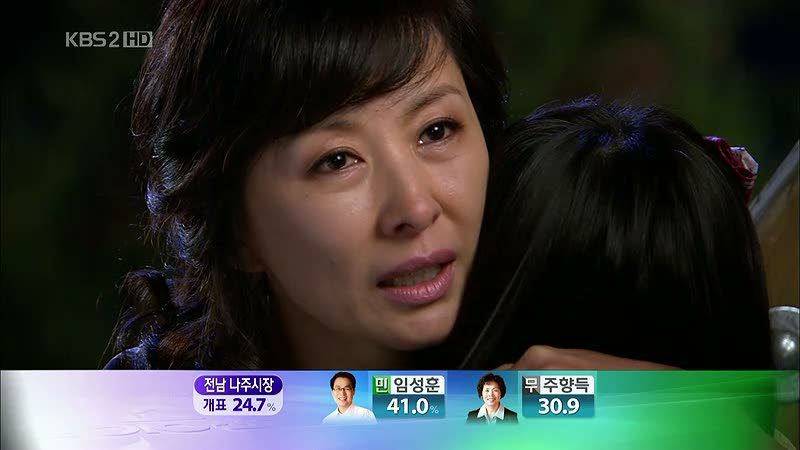
Kang-sook comes upon her friend’s daughter crying alone in a playground. The girl hates how her mom flirts and fights with those men every day, and I’m sure it’s no coincidence that the girl has Eun-jo’s haircut to match Eun-jo’s childhood damage. Kang-sook tells the girl that her mother isn’t doing those things out of enjoyment, but to feed her daughter.
Her words don’t soothe the girl, though, who continues to cry, and Kang-sook asks, “Does it really make you that upset?” At the girl’s nod, Kang-sook draws her in a hug and says sorry: “How could I have known that this would be so painful to a young thing?” Sigh — this drama always manages to force its characters to make important conversations with the wrong people.
Honestly, I don’t really buy that this is what finally makes Kang-sook realize the pain she gave to Eun-jo. It’s true that a lot of events have transpired to bring her to this point, and I agree that she’s more open now than she used to be. Still, this feels like an awfully easy way to bring her around at the last minute.
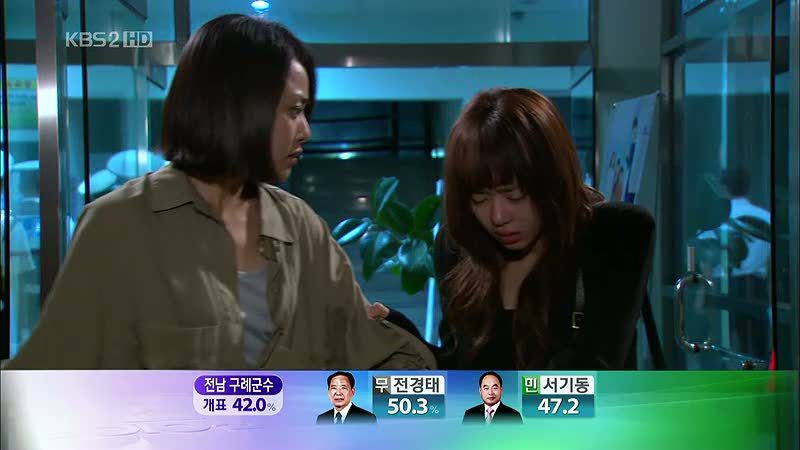
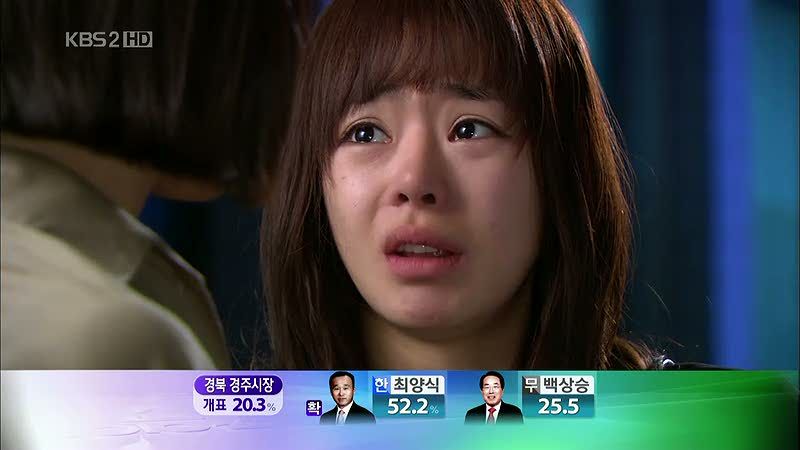
On their way out of the police station (with still no sign of Little Bro), Eun-jo tries to console Hyo-sun, saying Jun-su will be fine. Hyo-sun asks where her sister has been all day — where was she when Hyo-sun spent all day begging grandma about the stocks and Jun-su disappeared from home? She asks, “Are you even worried about Jun-su? Have you ever held him? Do you even know he’s our brother? Have you ever thought of him as your brother?”
Whoa, whoa. That seems unfair, and while I can see her frustration, it’s pretty out of line to accuse Eun-jo as though her afternoon away is the reason he ran off. As I recall, Hyo-sun was home and he STILL disappeared, so… what more does she expect?
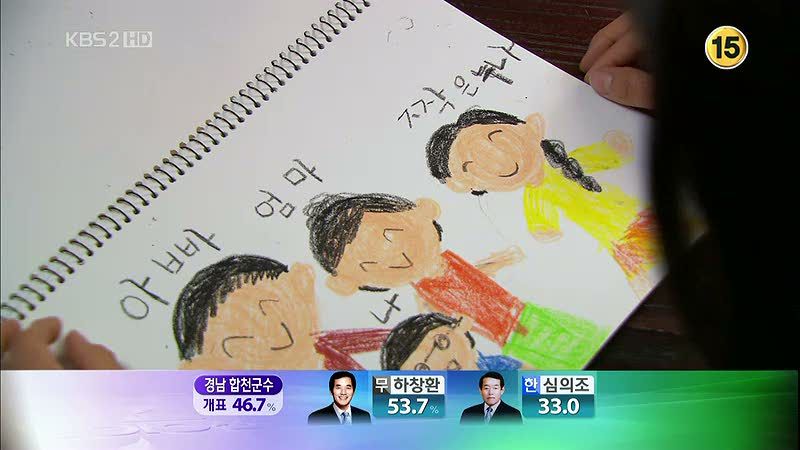
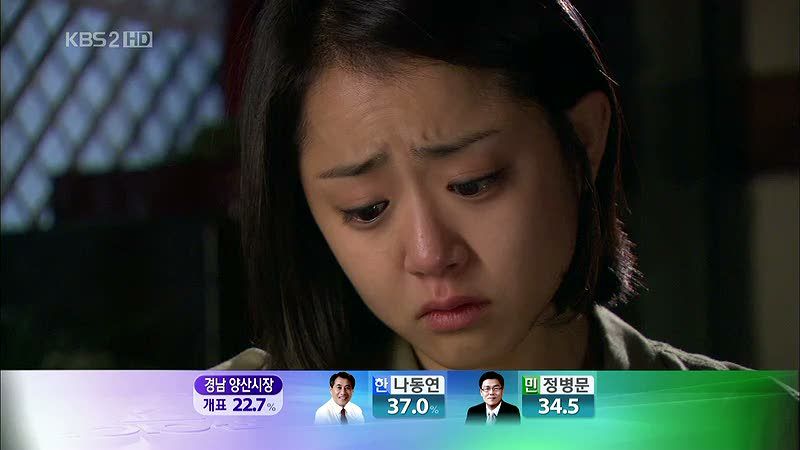
But Hyo-sun makes a valid point, I think, about Eun-jo never showing any interest in Jun-su. It’s not true that she doesn’t care for him, but that’s something we understand as adults; it’s no surprise that a child would translate a lack of interaction with a lack of interest. When she flips through Jun-su’s sketchbook, she finds a family portrait where he has only drawn four, with her conspicuously absent.
Ki-hoon parks his car in front of the Hong Ju offices and calls his brother to arrange a deal: He’ll trade his evidence against them for a contract promising to stop messing with Dae-sung Co. and a return of the stocks shares they’d bought from the elders. Ki-jung rejects this deal, telling Ki-hoon to do his worst. He doesn’t believe Ki-hoon would actually do it, because that would ruin their father. Ki-hoon tells him firmly that he has it in him, and gives him his deadline: he’ll wait till tomorrow morning.
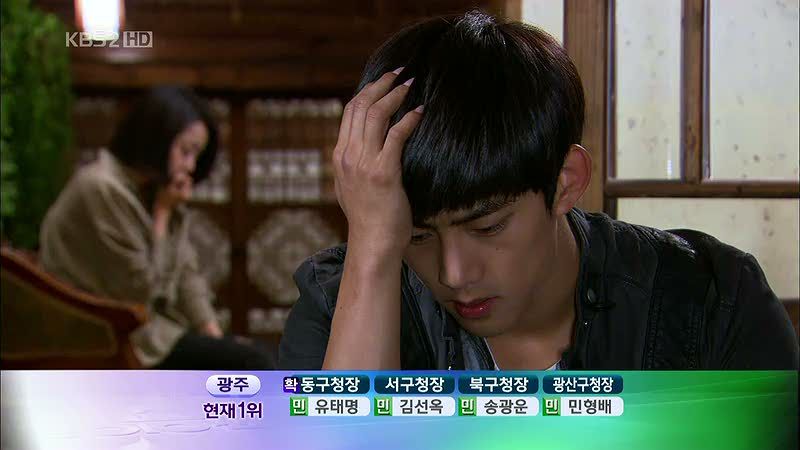
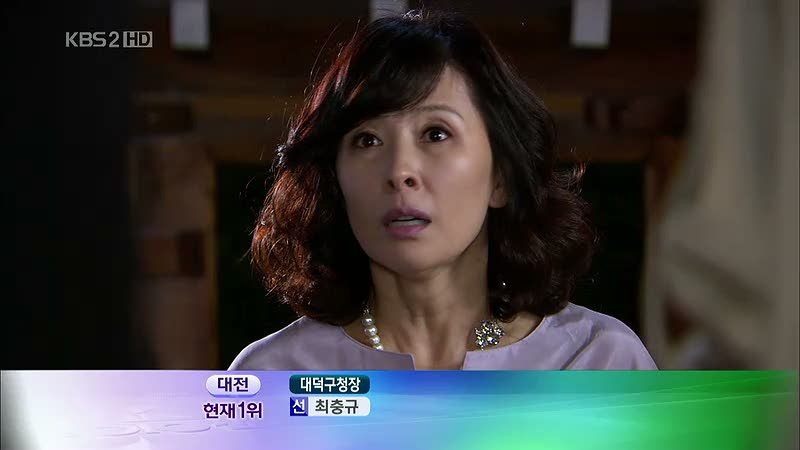
While the family members sit and wait anxiously for news, Kang-sook arrives, frantically asking about Jun-su. Where did they look? Did they search everywhere? Both sisters are shocked at her return, and Hyo-sun comes up to hug her, asking tentatively if Mom’s really back for good. She doesn’t get an answer, because Kang-sook rushes out in frustration to keep looking.
And then they find him… under the desk? Seriously, folks? Remind me to never ask any of these people to look for anything for me if this constitutes looking “everywhere” for a missing child. It’s not even a JFK style desk, which I could understand, but a big stinkin’ open space that cries OHO LOOK HERE LOOK AT ME ARE YOU BLIND? HELLOOOO!
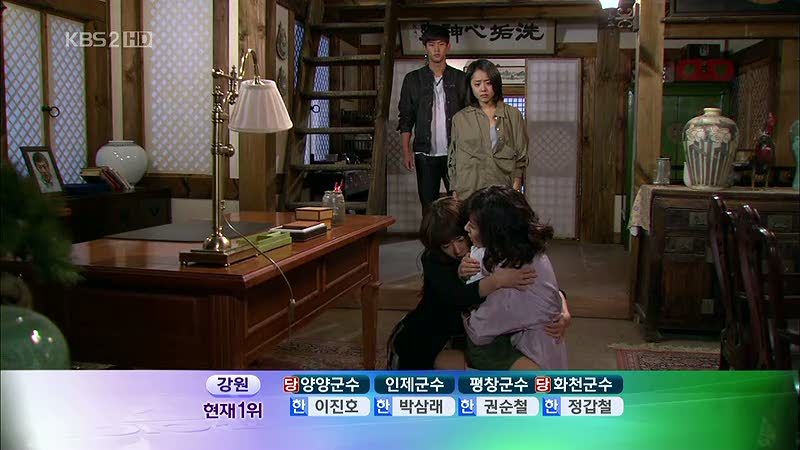
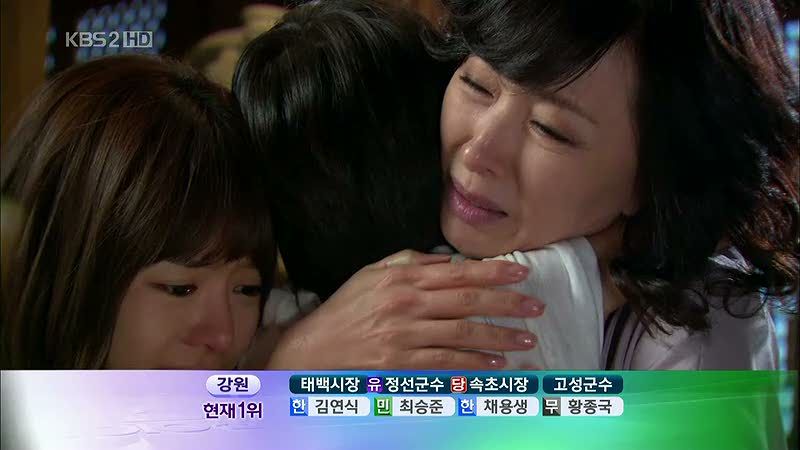
And even then, they don’t find Jun-su until he wakes up and starts to sob. The noise draws them to Dae-sung’s office, where Mom hugs him in relief, joined by Hyo-sun. Eun-jo watches this family reunion from the sidelines, feeling how very much she’s not a part of it. In her room, she sits alone — sending a concerned Jung-woo away — and thinks to herself again how her fairy tale ended this afternoon.
Mom and Hyo-sun bathe Jun-su, who basks in all the adoration. He explains that he was playing hide and seek, and a flashback shows us how he ended up under Dae-sung’s desk.
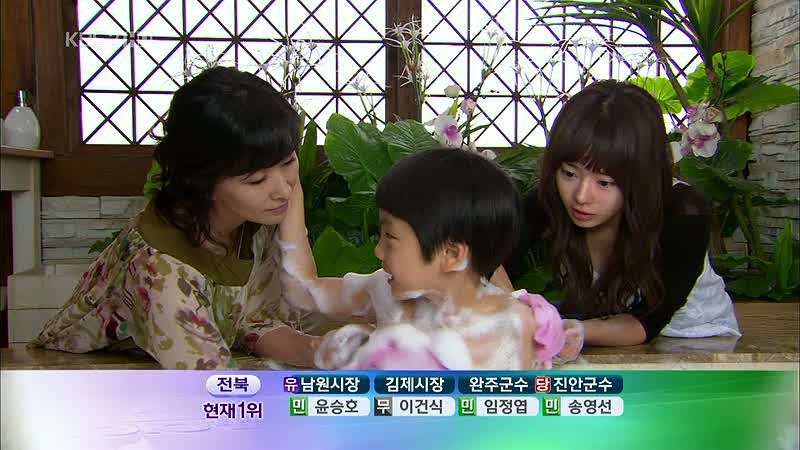
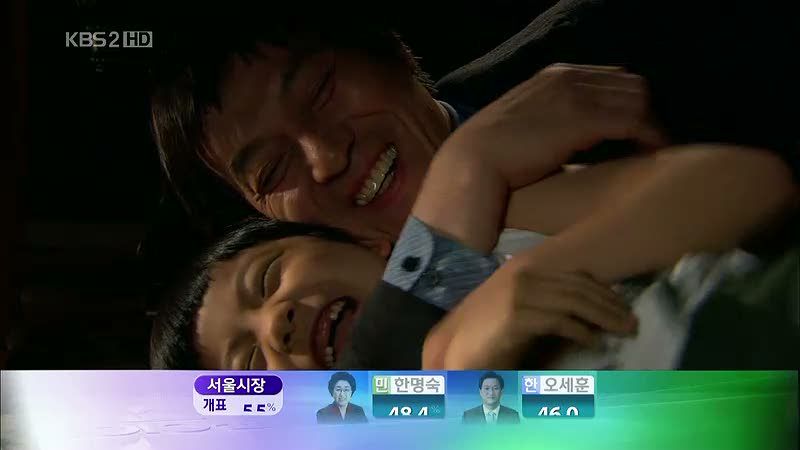
As he’d often done when Dad was alive, Jun-su had been playing hide and seek with Dae-sung in a sort of imaginary playtime. At first it seems like he’s merely reliving a previous game, but memory blurs with reality when this Dae-sung tells Jun-su to watch over his mother and sisters, as he is now the man of the house.
Eun-jo presses her mother to explain why she left and why she’s back, but Kang-sook insists that she has nothing to say. As the family eats, Hyo-sun tells Kang-sook they’re poor now — they may even lose the house. It’s her way of laying all the cards on the table, to ask what Kang-sook will do if the worst-case scenario comes to pass. Will she leave the family if there’s nothing more for her to rip off? Hyo-sun entreats Kang-sook to let her know what she’s planning so she can prepare herself.
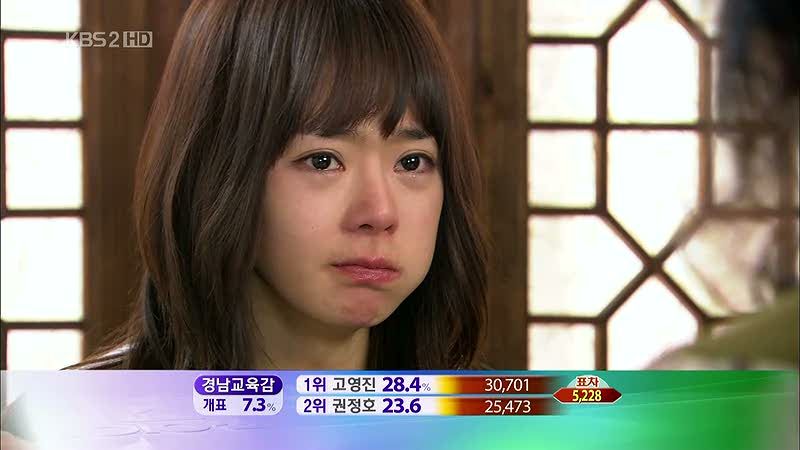
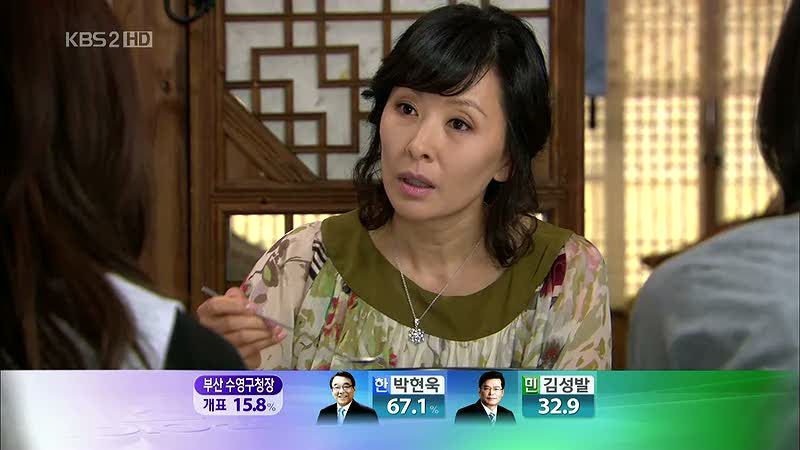
Kang-sook admits in a matter-of-fact tone that she had only been interested in materialistic gain, so why would Hyo-sun believe any sweet words she might say now? And then she criticizes Hyo-sun’s way of speaking — talking all around the main point in circles rather than stating her words clearly — and tells her to learn proper speech from Eun-jo, which strikes me as telling someone to learn how to sprint from a turtle. But this comment isn’t delivered harshly, and fixating on this mundane topic is her roundabout way (ironically?) of letting the girls know that she’s not planning on leaving. To confirm that point, she grumbles to Hyo-sun about not losing this house — doesn’t she know that she is Song Kang-sook? She’ll be damned if she lets someone take this house away from her.
Kang-sook takes control like she was never gone, gathering the employees of the winery to lecture them on their lax work ethics. However, this time the tone of her censure is different from before; in the past, she was all about exerting her authority, while now it seems like she may even care about the state of the company. When Hyo-sun’s uncle walks by and looks at Kang-sook in alarm, she surprises him by not kicking him out, as he’s thinking. Instead, she orders him to get back to work — a pretty clear sign of acceptance, given how many times she’s tried to get rid of him in the past.
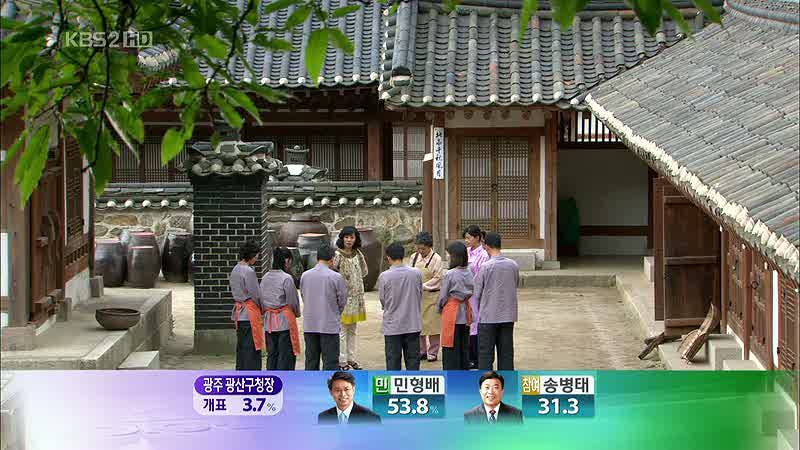
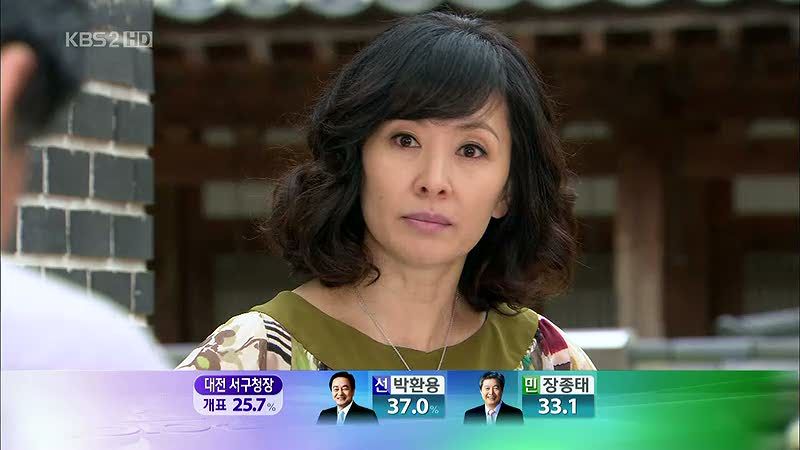
This attitude change extends to Hyo-sun, whom she treats with neither derision nor adoration but plain speaking. Flipping through Hyo-sun’s closet, Kang-sook tells her to give some of her nice things to Eun-jo, since she ought to feel bad for owning tons of pretty things when Eun-jo dresses so plainly. It appears Kang-sook has finally found her middle ground, but Hyo-sun’s confused at this new side.
Kang-sook levels with her, saying that she’s going to act as a stepmother now. She can’t outright lie anymore, and she’s tired of sweetening her words, so she’ll be honest — she can’t feel the same way about Hyo-sun as she does about her flesh-and-blood children. When Eun-jo or Jun-su are sick, she feels like her organs are being cut out of her, but she can’t feel that way about Hyo-sun, who only merits stab-wound levels of pain. However, she concedes that there’s eight years of attachment here, and Hyo-sun is the person who most reminds her of Dae-sung — so now she’s decided they’ll have a stepmother-stepdaughter relationship.
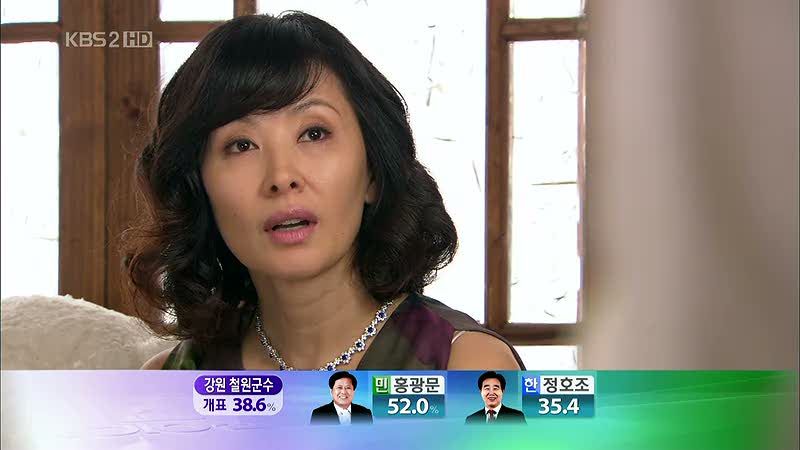
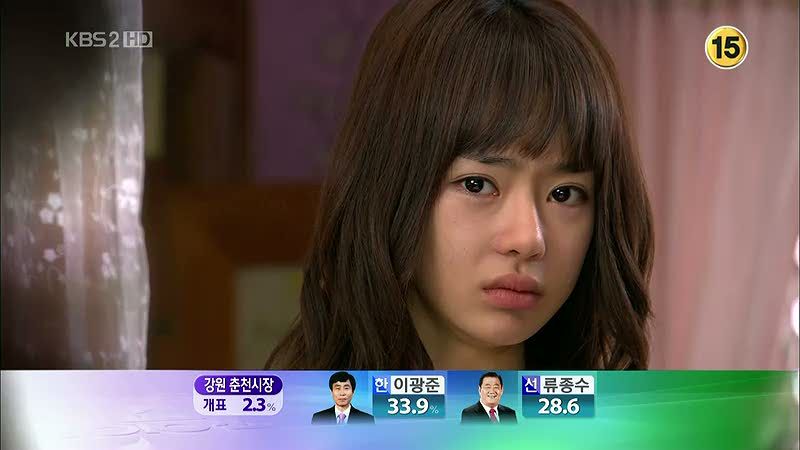
It’s difficult to read Hyo-sun’s reaction to this. There are so many emotions mixed up in there — confusion, hope, resentment — that you can’t pinpoint just one. But it’s the stabbing comment she chooses to fix upon, asking if Kang-sook really means that — is that how much Hyo-sun means to her, that she’d feel like she got stabbed if she were sick? Kang-sook answers yes.
With Kang-sook, I’d think this is light-years of development and let it rest, but Hyo-sun pushes for more. In time, with more bonding between them, would Hyo-sun ever get to the level of an organ-wrenching pain? This is hilarious, arguing about the varying degrees of pain associated with disembowelment, and Hyo-sun won’t be satisfied until her hypothetical illness would bring Mom the maximum levels of hypothetical agony.

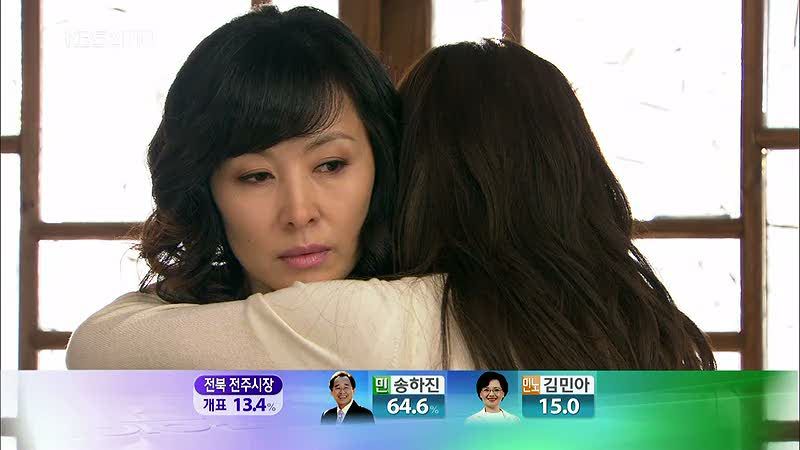
Hyo-sun grabs Kang-sook in a hug and tells her not to forget her sins against Hyo-sun or her father. (That strikes me as a pretty ominous thing to say, but it’s likely this is her way of reminding her not to run away anymore.) She adds, “I won’t tell you to pay it back with other things, so just hurt the same with me as you do with unni.”
I can’t decide if this is knee-slappingly funny or moving. Maybe both.
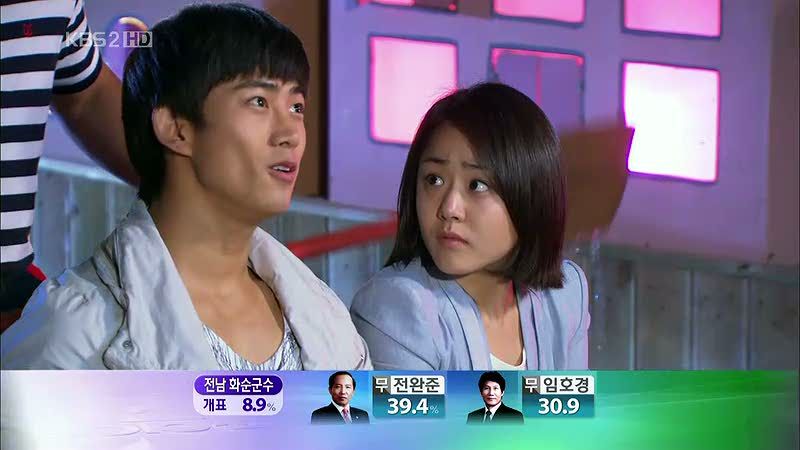

As Jung-woo looks at the inscription written on his baseball bat, he recalls his childhood and how he grew up loving Eun-jo. The flashbacks take him through their early days together, up through their almost-date on his “birthday.” Aie, indulging in such idyllic recollections now just foreshadows a big dose of heart-breaking to come, doesn’t it? Batten down the hatches, people!
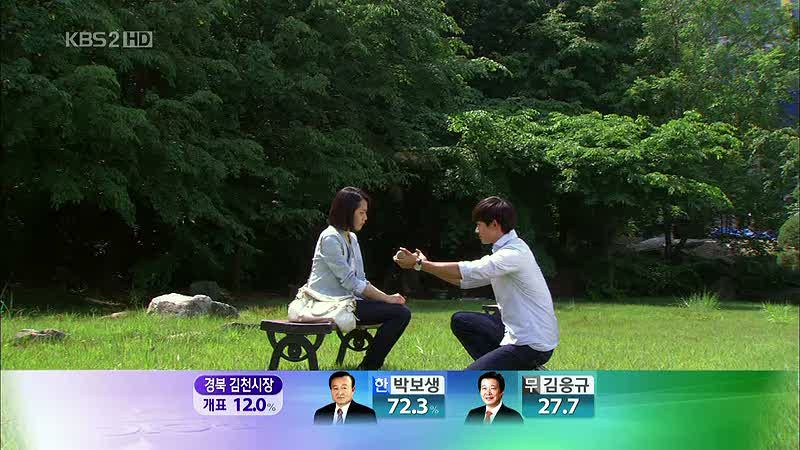
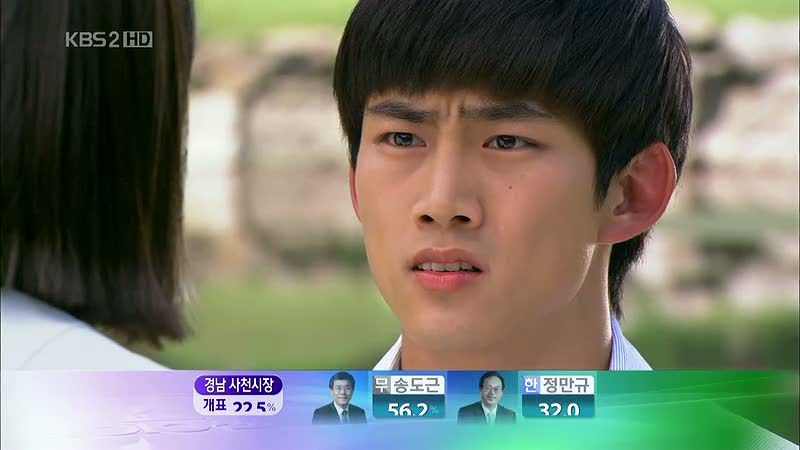
Sure enough, Jung-woo insists on talking to Eun-jo — for once not letting her brush him off — and presents her with his bat. He knows that he’s going to be rejected, but he has to do this anyway, no matter her response.
With that, he makes his confession/proposal, telling her that she’s been his woman since he was young, and he has always wanted to take care of her. Ki-hoon has made her cry a lot, and will keep making her cry in the future, and he can’t sit back and watch that happen: “Live with me.” That’s basically a marriage proposal, and he promises to make her happy, to only live for her. Oh, it’s so sad to think of the adorably pudgy little boy saying this, and getting the door firmly shut on him.
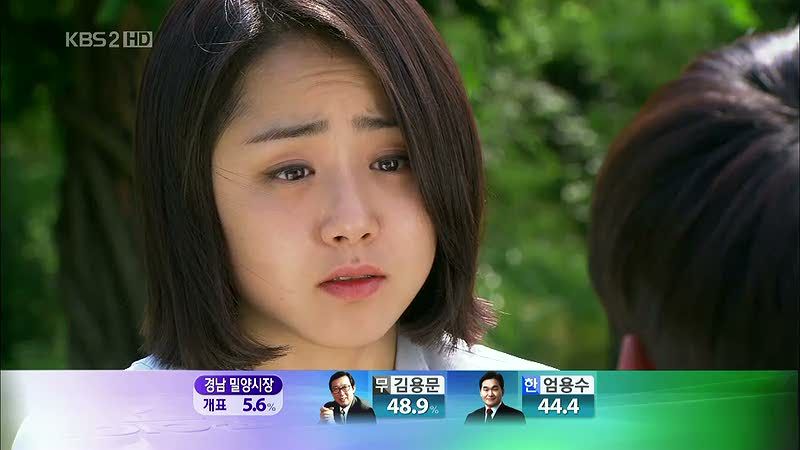
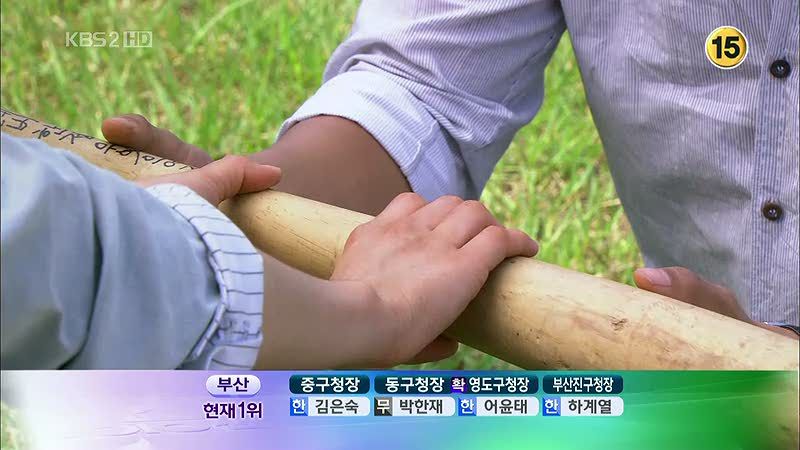
Eun-jo tells him that it’s not that she dislikes Jung-woo, but she can’t be with him because she likes Ki-hoon so much. Even though she doesn’t know if she can be with Ki-hoon for the long haul, it doesn’t matter to her: “What does it matter when I’m crazy about him? You’ll meet a woman who will like you as much as I like him.” She hands the bat back, saying that she cares about him. But now she’s got to go to Ki-hoon.
Having waited all night in his car, Ki-hoon wakes in the early morning. The lack of a response from Ki-jung means that he’s not planning on complying, but that turns out to be a moot issue anyway, because the truth has already come out.
Eun-jo has read the reports in the morning paper, and heads over to Hong Ju. Ki-hoon sees her entering the building and follows her up, trying to urge her to stand by because it’s almost over. But no, she corrects him — it’s already over. Hong Ju and his father have already been charged with their misdeeds.
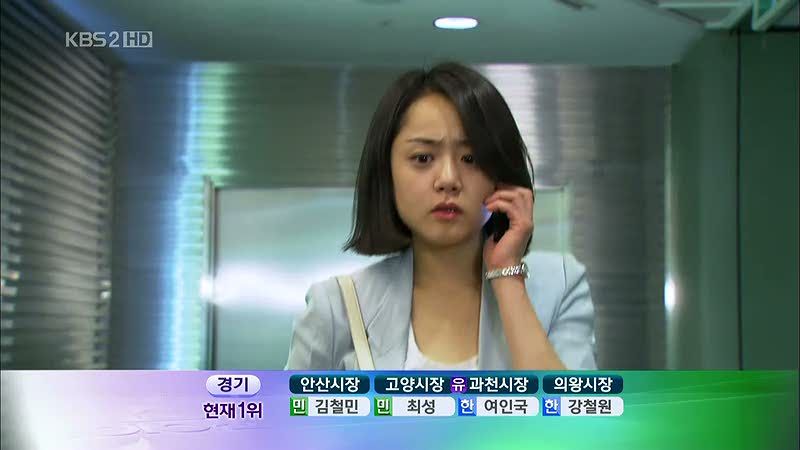
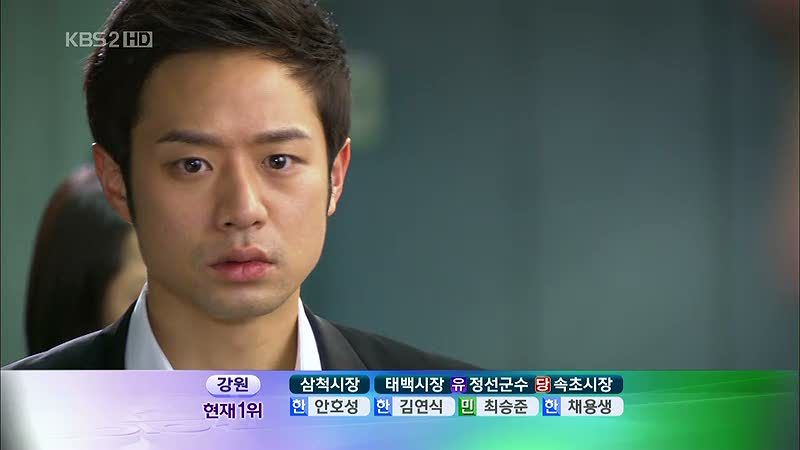
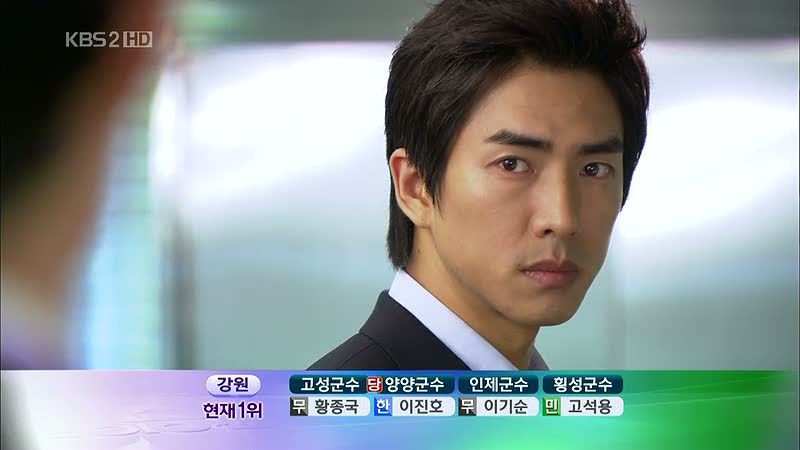
At that, the doors open and out steps Ki-jung, who tells Little Bro that he’s won. It turns out that Director Park blew the whistle on the company, conveniently removing the dilemma of Ki-hoon blowing the whistle on his own family. This is another contrived plot turn that would drive me absolutely nuts if this weren’t the penultimate episode and I weren’t so relieved that problems are being resolved rather than strung out.
Eun-jo and Ki-hoon watch from the car as his father is escorted to his car, mobbed by overeager reporters. Ki-hoon wades through the crowd to knock on his father’s window, and leans in close — so as not to be overheard — to ask his father one more time to leave it all behind.
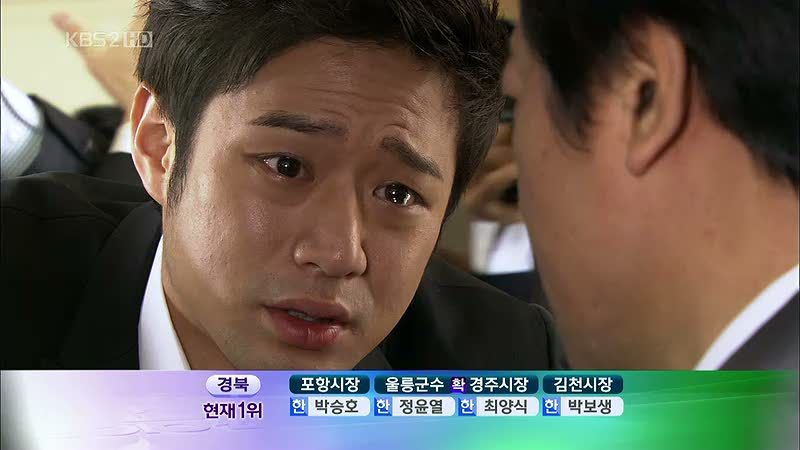
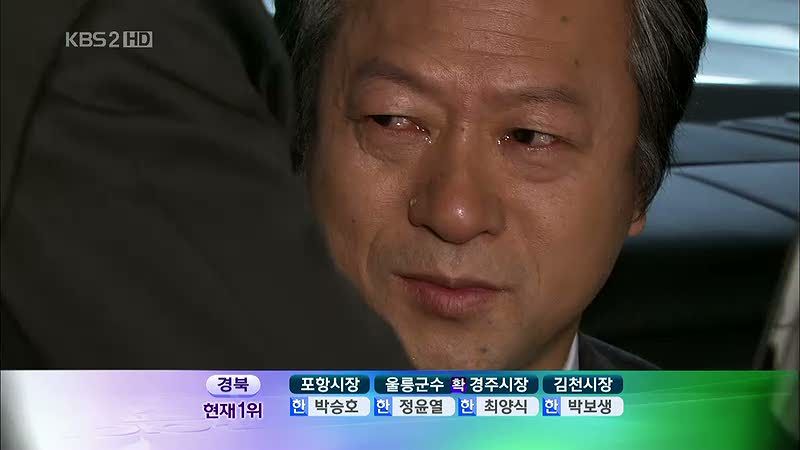
Ki-hoon promises to support him and be the devoted son, if his father will leave this all behind and come with him. (I’m not sure that President Hong has any agency left that allows him to decide to leave anything behind, frankly, what with the inevitable lawsuit and perhaps criminal charges he’s facing. But I’ll interpret this as mostly symbolic talk, not literal.)
Dad is touched at Ki-hoon’s heartfelt entreaty, even moved to tears, and he looks at him fondly. But of course it isn’t so simple and he can’t (or won’t) do that. The window goes back up and he instructs his driver onward.


I don’t suppose his father’s decision comes as a huge surprise, but it hurts nonetheless. After the car drives away and the crowd disperses, Ki-hoon remains standing by numbly. Eun-jo approaches and takes his hand, then gently leads him back to the car.
Meanwhile, Hyo-sun and her mother go shopping for some clothes, and Kang-sook picks out a shirt to buy Eun-jo. The point being that she isn’t buying anything for stepdaughter Hyo-sun. But in its own weird way, Hyo-sun isn’t hurt by this version of Kang-sook and even takes it in an encouraging light. Teasingly, she tells her mother not to discriminate between daughters, and adds her own garment to the pile. Funny how this is a sign of progress in this family, isn’t it?
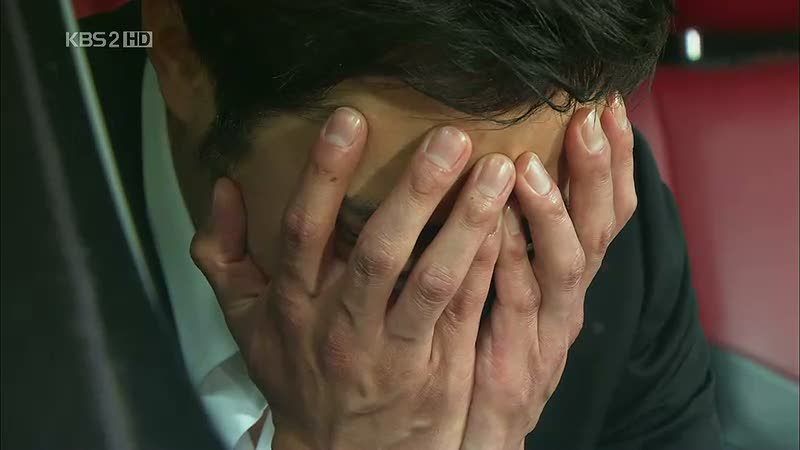

Eun-jo drives them to Ki-hoon’s favorite conversation spot — the forest — and steps aside to allow him some privacy while he cries in heartwrenching sobs.
After some time has passed, she opens his car door and pats him on the shoulder. Then she takes his hand again, gently leading him out of the car.
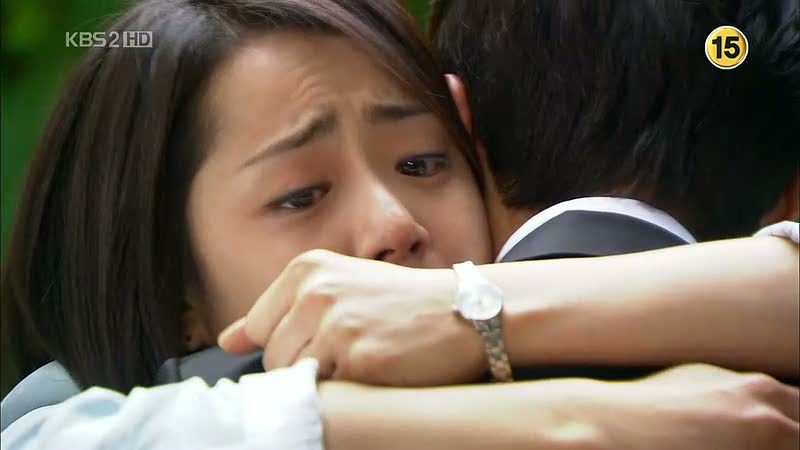
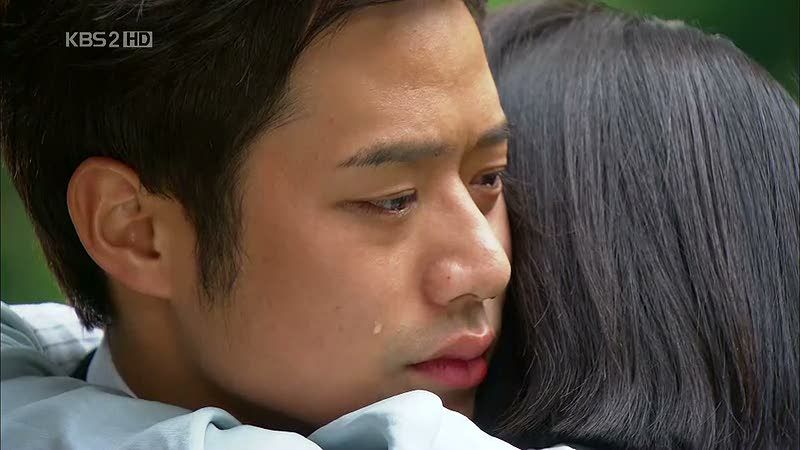
Eun-jo envelops him in a hug, her hand moving soothingly on his back in a consoling gesture. She tells him that he should have told her from the very start (that’s what I’m sayin’!), because she would have been able to help him in his difficult times. They could have discussed things together, “and we wouldn’t have had to lose anything.”
Eun-jo: “‘You can lean on me.‘ When Dad said that to me, I knew that even if I didn’t lean on him right away, I’d found someone to lean on whenever I needed. At that moment, it was like something that was bundled up stiffly suddenly came loose and relaxed. Lean on me. You can lean on me. I’m telling you to lean on me this time, okay?”
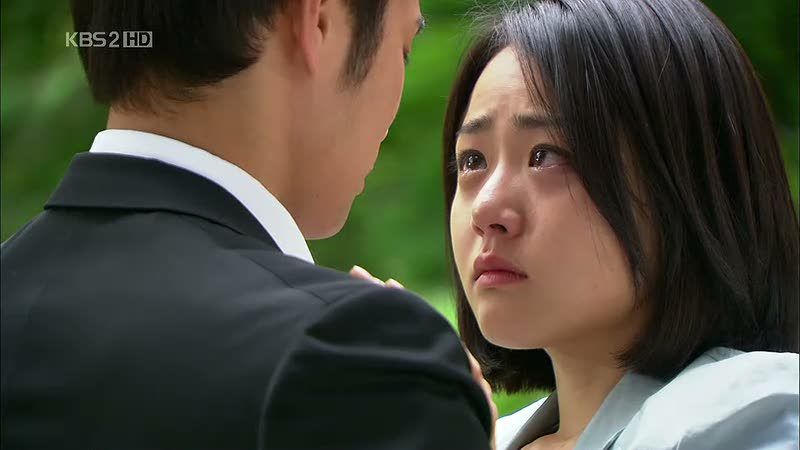
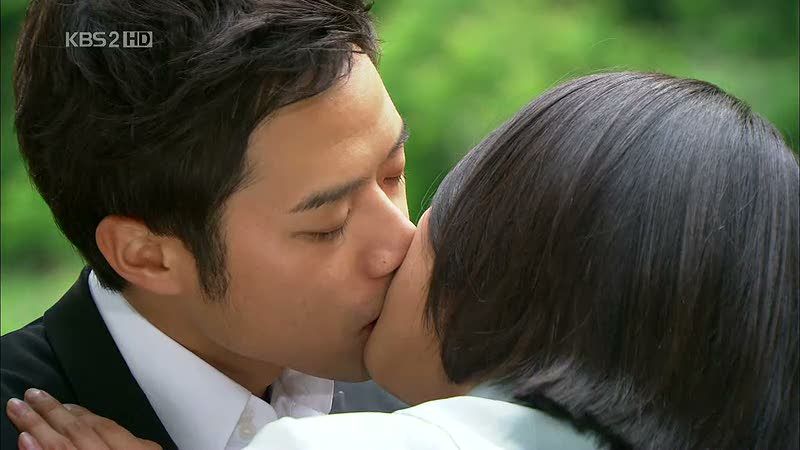
He holds her tightly for long moments, and when he draws back, he first presses a kiss to her forehead.
And then, ever so slowly, they kiss.
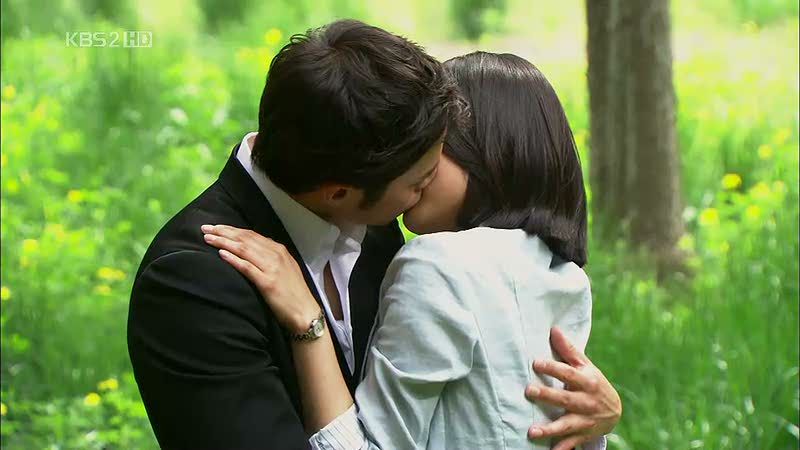
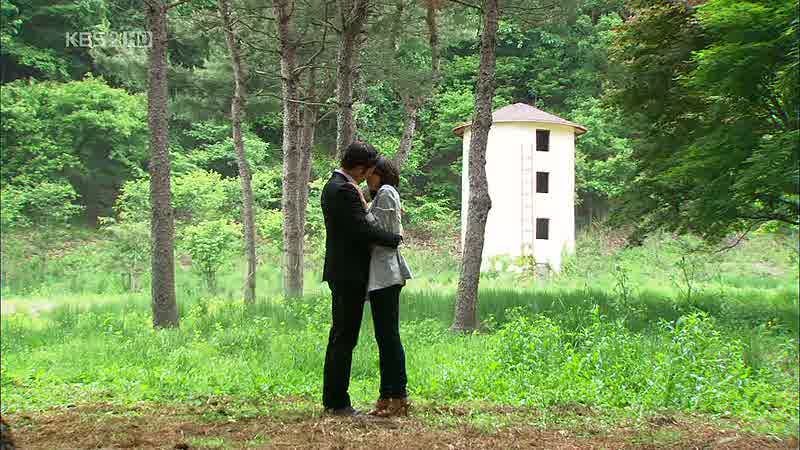
COMMENTS
It’s kind of a shame that this drama is picking up right at the end, after about eight episodes of dragging its feet. I felt that everything from 9 through 17 was needlessly slow and plodding, and now that we’re at the end I think we can say (or at least, many of us) that the drama would have been a lot more satisfying with 16 episodes. The first four were wonderful, and I enjoyed 5 through 8 as well. And the last four have improved after finally resuming a normal pace. Everything in between needed to be about twice as fast as it was.
As I said, I felt like some of the stuff here was really anticlimactic, especially after the monster build-up of the whole series. After all that, you’re going to have a minor third party blow the whistle and remove any remaining tension from the hostile takeover plotline? And I know that there will be arguments that Kang-sook’s return worked for some viewers, but I think they messed up with the trajectory of that story arc. And Jun-su’s disappearance? Puahahaha! This could have actually been pretty effective, if they’d set it up better — the fact that he was lying there in the open all day made an important plot point silly. They couldn’t have stuck him in a closet? Or a refrigerator a la Punky Brewster? Heck, this drama takes place at a winery — a wine cask would have been just the ticket.
The business angle has bothered me throughout, because I feel like the writer didn’t really bother trying to depict it credibly. I’m not saying it has to be 100% realistic — that could get boring — but it should at least feel like the writer knew what she was talking about. The takeover storyline was underdeveloped and one-dimensional, and it felt like the drama manipulated the business plotline to provide convenient conflicts, rather than incorporating it in a believable way. This also has the secondary effect of making the Bad Guys pretty ineffectual as far as bad guys go. Sure they engaged in backdoor lobbying, but underbidding a rival and stealing contracts is pretty mundane stuff.
Ultimately those are minor quibbles. I bring them up because they bugged me, but it’s like the joy of finally getting to the end is putting me on an emotional high, and I almost don’t even care anymore if these characters’ paths to ultimate happiness make sense. I see the finish line, and getting there in one piece is the only important thing now.

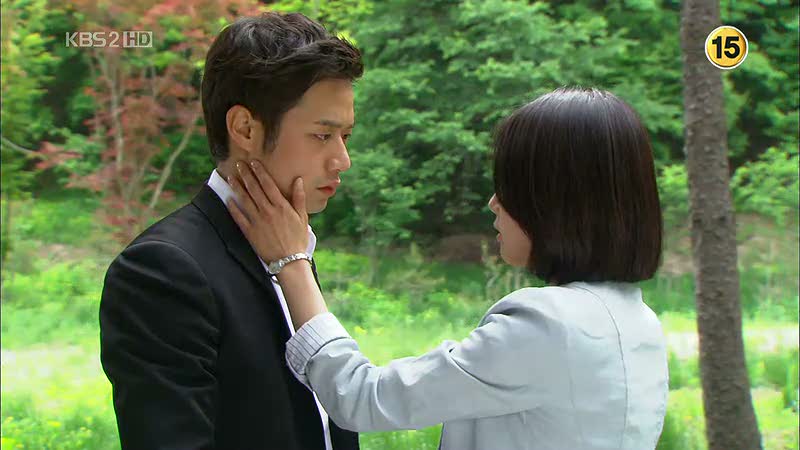
No comments:
Post a Comment